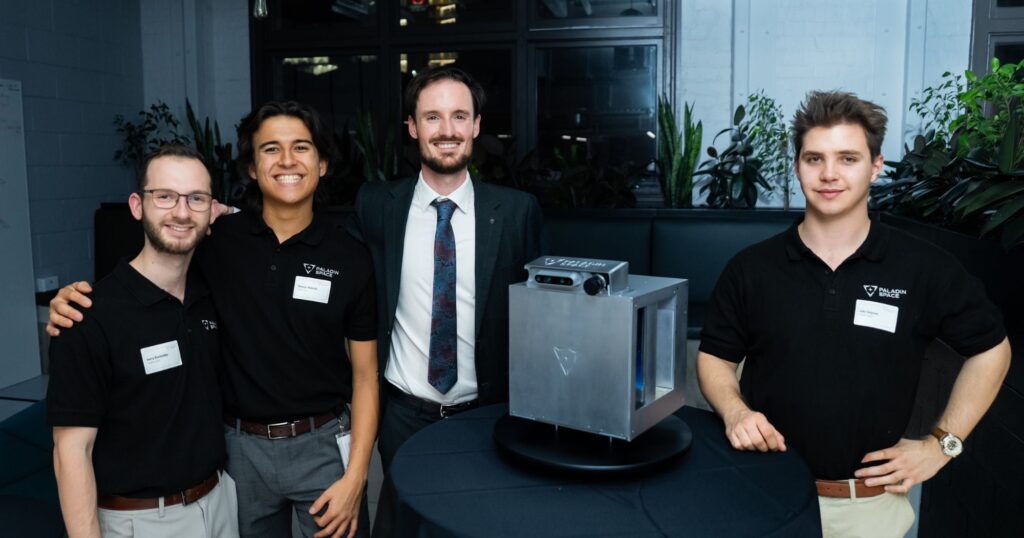Paladin Space, based out of the University of South Australia’s Innovation & Collaboration Centre (ICC), has unveiled Triton — the world’s first multi-target debris capture payload. The tech is designed to collect and store space junk on satellites for future recycling, tackling the sustainability crisis in orbit while opening a new frontier in in-space manufacturing.
Unveiled at a private demonstration this week, Triton marks a significant leap forward in space innovation. Capable of capturing multiple pieces of debris during a single mission, the payload is also designed with reusability in mind — ejecting its contents at precise moments before safely burning up on atmospheric re-entry or docking with future orbital manufacturing stations.
“Triton will make the process of debris removal more sustainable and cost-effective while also being able to eject its contents on space targets, preserving the spacecraft in orbit to be reused for other missions,” said Paladin Space founder Harrison Box.
The long-term ambition is bold but timely: to turn space debris into a resource. Once in-orbit recycling infrastructure becomes mainstream, Paladin wants Triton to be a supply chain link — delivering scrap metal to be repurposed into satellite parts like rods and sheets, skipping the costly and carbon-intensive launch process.
From Student Project to Space Startup
Paladin Space’s momentum has been supercharged by its involvement in UniSA’s Venture Catalyst Space accelerator, which has helped over 40 space startups raise nearly $43 million and create 240 jobs. The team was also a standout in ICC’s global space hackathon.
Craig Jones, Deputy Director of Business Incubation at UniSA, said the team’s rise from early-stage concept to tech demonstration has been “mind-blowing.”
“Triton is on course to revolutionise the space debris industry and contribute to manufacturing in space — a mind-blowing proposition,” said Jones.
Paladin’s founder, Harrison Box, is no stranger to complex aerospace systems. With a master’s in aerospace engineering from the University of Glasgow, and experience working with Nissan, BAE Systems, and even building rocket engine test stands in the Mojave Desert, his vision for Paladin is backed by deep technical and industry experience.
“The advice I received in the early days helped to shape everything from our pitch deck to financial planning. Having an office space to prototype and run our business from was also a game-changer,” said Box, who plans to keep Paladin’s HQ in South Australia as long as government support for space innovation continues.
The Growing Market for In-Orbit Services
The global market for in-orbit servicing — including satellite life extension, refuelling, and debris removal — is on track to reach $4.7 billion by 2031, with debris mitigation comprising roughly half of that. That puts Paladin Space on the leading edge of a burgeoning industry, where solutions that are both scalable and sustainable are increasingly in demand.
South Australia’s Minister for Defence and Space Industries, Stephen Mullighan, says the company’s innovation exemplifies the role local startups are playing in driving forward the national space agenda.
“Paladin Space’s technology is a perfect example of what’s possible when you foster an environment that nurtures bold ideas,” said Mullighan. “It’s an example of homegrown ingenuity aimed at solving global challenges.”
What’s Next?
Paladin Space’s next steps include in-orbit demonstration, securing pilot customers, and spaceflight qualification testing. The startup is also preparing for overseas expansion, with announcements expected in the coming months.

